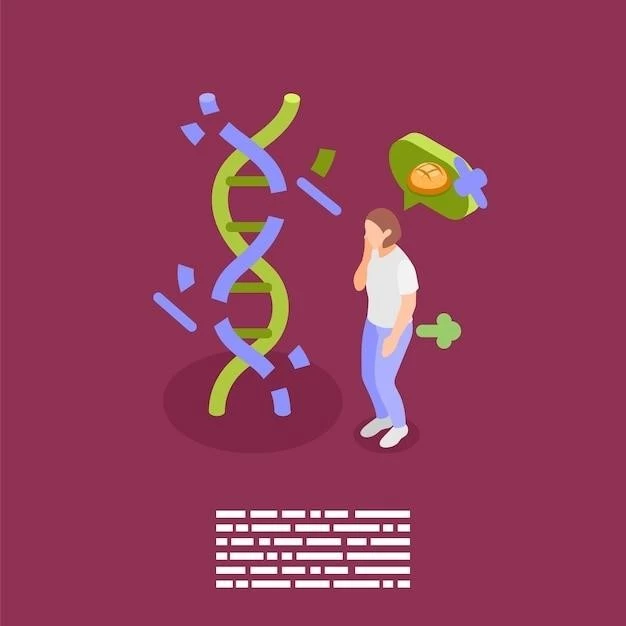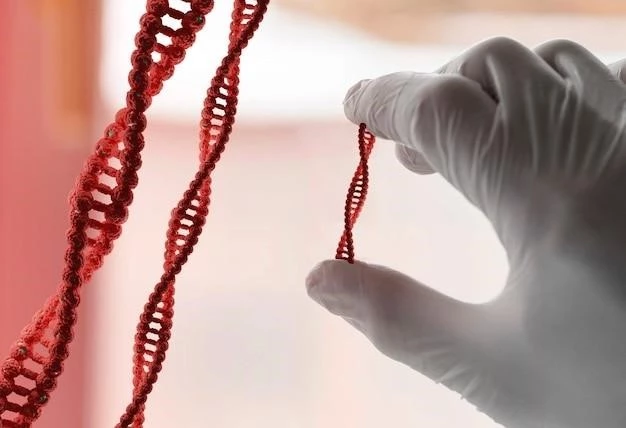Overview of Chromosome 14q Terminal Deletion Syndrome
Understanding the impact of chromosomal deletions can help families navigate challenges‚ seek appropriate care‚ and find support.
Description of Chromosome 14q Terminal Deletion Syndrome
Chromosome 14q deletion involves a missing piece of genetic material on the long arm of chromosome 14. This deletion can lead to various physical‚ developmental‚ and intellectual challenges. Understanding the specific genetic alterations associated with this syndrome is crucial for diagnosis‚ treatment planning‚ and ongoing support for affected individuals and their families.
Diagnosis and Testing for Chromosome 14q Terminal Deletion Syndrome
Diagnosing chromosome 14q deletion often involves genetic testing‚ such as chromosomal microarray analysis or fluorescence in situ hybridization. These tests can identify the specific chromosomal abnormalities present. Consulting with a genetic counselor or a medical geneticist can help interpret results and provide guidance on available testing options for accurate diagnosis and appropriate management strategies.
Symptoms and Clinical Manifestations of Chromosome 14q Deletion
Manifestations of chromosome 14q deletion can vary but may include intellectual disability‚ delayed growth‚ heart defects‚ and distinctive facial features. Consult with healthcare providers for personalized care.
Common Symptoms of Chromosome 14q Deletion
Common symptoms of chromosome 14q deletion may include developmental delays‚ intellectual disability‚ growth delays‚ distinctive facial features‚ heart defects‚ vision or hearing problems‚ and challenges with feeding or digestion. These symptoms can vary in severity and impact individuals differently. Early intervention‚ therapies‚ and medical management can help optimize quality of life for individuals with chromosome 14q deletion. Seeking support from healthcare professionals and support networks can provide valuable resources and guidance for individuals and families affected by this genetic syndrome.
Genetic Counseling for Chromosome 14q Terminal Deletion
Genetic counseling is crucial for families navigating the complexities of chromosome 14q deletion. Consult with genetic counselors for personalized guidance and support.
Role of Genetic Counselors in Chromosome 14q Deletion Cases
Genetic counselors play a vital role in providing families with information about chromosome 14q deletion‚ facilitating genetic testing‚ explaining results‚ and offering emotional support. They help individuals understand the genetic basis of the condition and guide them through decision-making processes regarding treatment options‚ family planning‚ and accessing support services. Genetic counselors collaborate with healthcare providers to ensure comprehensive care and ongoing assistance for families affected by chromosome 14q deletion.
Treatment Options for Individuals with Chromosome 14q Deletion
Collaborate with healthcare providers to explore tailored interventions addressing specific symptoms and challenges associated with chromosome 14q deletion.
Management Strategies for Chromosome 14q Deletion
Individuals with chromosome 14q deletion may benefit from a multidisciplinary approach involving therapies such as physical‚ occupational‚ and speech therapy‚ special education services‚ and medical interventions to address specific health issues. Working closely with a healthcare team can help tailor management strategies to meet the unique needs of individuals with chromosome 14q deletion. Early intervention and consistent monitoring can optimize outcomes and quality of life.

Developmental Milestones and Challenges in Chromosome 14q Deletion
Understanding the unique developmental journey and challenges individuals may face with chromosome 14q deletion is essential for tailored support and care.
Key Developmental Milestones for Individuals with Chromosome 14q Deletion
Individuals with chromosome 14q deletion may achieve developmental milestones at their own pace. Early intervention services and personalized education plans can help support progress in areas like communication‚ motor skills‚ and social interactions. Monitoring growth‚ development‚ and adapting interventions based on individual needs are essential components of comprehensive care for individuals with chromosome 14q deletion.
Research Advances in Understanding Chromosome 14q Terminal Deletion
Stay informed about the latest research efforts and findings to enhance understanding and potential treatment options for chromosome 14q deletion.
Current Research Efforts and Findings in Chromosome 14q Deletion
Ongoing research aims to deepen the understanding of chromosome 14q deletion‚ explore potential targeted therapies‚ and improve outcomes for affected individuals. Staying connected with research initiatives can provide valuable insights and hope for the future.
Support Services and Resources for Families Affected by Chromosome 14q Deletion
Explore available support networks and organizations to connect with other families‚ access information‚ and find emotional and practical assistance.
Available Support Networks and Organizations
Various organizations‚ such as Chromosome Disorder Outreach‚ Unique‚ and Chromosome 14q Foundation‚ offer support‚ information‚ and community for families affected by chromosome 14q deletion. Connecting with these networks can provide a sense of belonging‚ valuable resources‚ and the opportunity to share experiences with individuals facing similar challenges. Accessing support networks can help families navigate their unique journey effectively and feel supported throughout the process.
Prognosis and Long-Term Outcomes of Chromosome 14q Terminal Deletion
Understanding the long-term outlook and potential challenges can help families prepare‚ access appropriate care‚ and seek support for their loved ones.
Understanding the Prognosis of Chromosome 14q Deletion
The prognosis for individuals with chromosome 14q deletion varies based on the specific genetic alterations‚ associated symptoms‚ and available interventions. Regular medical follow-ups‚ early intervention services‚ and comprehensive health management can positively impact long-term outcomes. Monitoring developmental progress and addressing individual needs can contribute to better quality of life for affected individuals. Seeking guidance from healthcare providers and support networks is crucial for navigating the challenges associated with chromosome 14q deletion.
